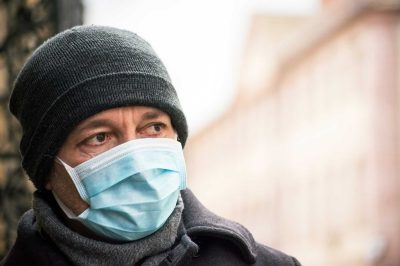Averting Harms Has Higher Priority Over Attaining Benefits [Dar’ Al-Mafāsid Awlā min Jalb Al-Manāfiʿ]
Another sub-maxim in the same category as the “do not cause harm” principle addresses issues where there is a conflict between harm and benefit an action might have.
A common example used by Muslim scholars of Islamic Law is to prohibit selling harmful products to the public. For example, if someone were to sell drugs in society, they might claim that there is immense benefit for the seller. The drug-dealer could also claim that he donates a large portion of that money to the poor, therefore resulting in a significant benefit.
A similar argument was made in the United States in 2012 when the state of Colorado was voting to legalize recreational use of marijuana. One of the arguments made in favor of legalization was that it would increase tax revenue which could be used to help schools and other social welfare projects.
The problem with such an argument, from an Islamic perspective, is that it would cause harm to the individuals who use marijuana as well as harm to the society. Therefore, averting the harm of drug use should have taken priority over the benefits derived from additional taxes.
In the Context of COVID-19
Using the same logic, Muslim scholars employed the same principle when deciding what to do in the current situation where there is a scarcity of healthcare resources available to care for patients suffering from both COVID-19 and other health issues.
For example, if current infection rates continue as predicted, there will be a shortage of ventilators needed to support patients with respiratory collapse. The issue becomes: who gets access to the ventilator? Who gets unplugged?
This is a very difficult question because it is usually a matter of life or death. Some people will have to die in order to save others. It is similar to the story of Prophet Yūnus [Jonah] mentioned in the Qur’an where someone needed to jump off the boat in order to save the others. Lots were drawn randomly, and Prophet Yūnus was destined to be the one to jump overboard. Muslim scholars looked at the story in the Qur’an and concluded that, given all things being equal, drawing lots randomly to choose who will be saved is a valid method which was not criticized by Allah in the Qur’anic story.
Applying the Legal Maxim
However, COVID-19 patients are not always in a similar state across the board. Some are much more likely to recover due to their overall health and others are much less likely to survive due to other complications they are having.
Applying the principle “averting harms is priority over attaining benefits”, it was argued that ventilators should be given to people who are most likely to recover and survive. There is no doubt that the ventilator would bring ‘benefit’ to those who have severe complications, but this would cause significant harm to the others who were waiting to use the short-supplied machines.
In the same vein, the argument has also been made to prioritize essential healthcare workers such as emergency room personnel. If they are in need of a respirator, and are likely to recover, they should get priority over others because their ability to ‘avert harm’ from others, due to their needed expertise, takes precedence over the ‘benefit’ that others may get from the machines.
These are very challenging ethical decisions and there is
not always one black-and-white answer to such complex problems. However, using
established legal maxims, and sub-maxims, helps scholars to arrive at a
decision that is rooted in a sound Islamic framework.



